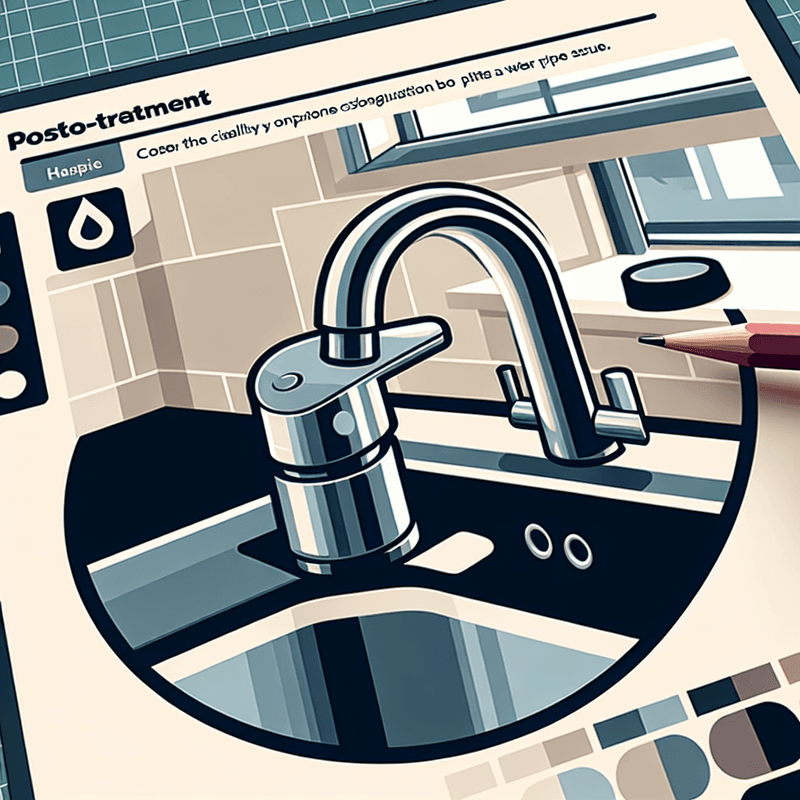Imagine this: after a hearty family meal, you’re left to tackle the dishes. But as the water slowly, almost grudgingly, swirls down the drain, you realise that your evening might just get a bit longer. Slow draining sinks are a common annoyance but often hint at deeper underlying drainage problems that require attention.
A slow draining sink can transform a simple kitchen task into a frustrating ordeal, making everyday activities less efficient and more time-consuming. However, it’s not just about inconvenience; if left unchecked, this minor irritation can escalate into a major plumbing disaster, including blocked pipes or even home flooding. In this blog post, let's delve into the root causes of slow-draining sinks, how you can effectively address them, and when it’s time to call in a professional.
The experience of dealing with a slow draining sink is not uncommon, and understanding what causes this issue can help prevent future occurrences. Through this discussion, I aim to provide you with practical, actionable advice drawn directly from the day-to-day experiences of a plumbing professional.
Understanding the Causes of Slow Draining Sinks
Several factors can contribute to your sink taking longer to drain. Here’s a look at some of the most common culprits:
Build-up of Debris and Organic Material
Everyday activities like washing dishes or preparing food can introduce substances such as grease, soap scum, food debris, and even hair into your sink's drainage system. Over time, these materials can accumulate and form a blockage.
Pipe Installation Issues
Incorrectly installed or configured plumbing can hinder water flow. For instance, if pipes are too narrow or improperly sloped, they might not efficiently facilitate the passage of wastewater.
Venting Problems
Adequate venting is crucial for proper water flow in your plumbing systems. A blockage or issue within the venting system can disrupt the air pressure balance necessary to maintain steady water flow.
Mineral Build-up
In areas with hard water, mineral deposits can accumulate inside the pipes, reducing diameter and impeding water flow. This is more gradual but can be quite problematic over time.
Spotting the Problem Early
Recognising the early signs of a slow draining sink can allow you to address the issue before it worsens. Be on the lookout for:
Water Pooling
If water is noticeably pooling and taking longer to drain after normal usage, it’s a definite sign of a developing blockage.
Unpleasant Odours
Trapped food particles and other decomposing debris can produce foul smells emanating from the drain.
Unusual Noises
Gurgling sounds from your sink may indicate trapped air escaping due to a blockage downstream.
Simple DIY Fixes
There are several methods to tackle a slow draining sink yourself before considering professional help:
Boiling Water
Sometimes, a simple fix like pouring boiling water down the drain can help melt and disperse grease build-ups.
Baking Soda and Vinegar
A natural alternative to chemical cleaners, the combination of baking soda and vinegar can help break down blockages due to its effervescent action.
Plunger
A good old-fashioned plunger can also be effective. Make sure to create a good seal around the drain opening to optimise pressure.
Drain Snake
For more stubborn blockages, a manually operated drain snake can be used to dislodge the obstruction directly.
When to Call a Professional
If your DIY attempts don’t resolve the problem, it might be time to call in a professional plumber. Moreover, if you notice that multiple drains in your home are draining slowly, this could indicate a more serious systemic issue that requires professional tools and knowledge.
Signs You Need Professional Help
- Persistent clogging despite efforts to clear
- Multiple slow-draining fixtures
- Recurrence of the issue in a short time
Long-Term Prevention
Prevention is always better than cure. Here are some tips to keep your drainage system functioning optimally:
Regular Cleaning
Perform regular cleaning of visible drain parts to avoid the build-up of debris and scum.
Avoid Chemical Cleaners
Frequent use of harsh chemical cleaners can corrode your pipes over time. Opt for more natural solutions whenever possible.
Install Strainers
Use sink strainers to catch particles and prevent them from entering your drainage system.
Routine Maintenance Checks
Consider a routine inspection by a professional to identify and rectify potential issues before they escalate.
Conclusion
Managing a slow draining sink effectively requires a blend of proactive maintenance, timely intervention, and professional assistance when necessary. By understanding and identifying the early signs of blockages, employing simple DIY fixes, and recognising when professional help is needed, you can ensure your plumbing system remains in optimal condition. As a practical action, I recommend regularly checking and cleaning your sink strainers — a small task that can prevent major plumbing concerns over time.
With careful attention and routine maintenance, the flow of your daily life need not be disrupted by something as remediable as a slow-draining sink.





